'Essential' music venues to get a big financial boost
 Getty Images
Getty ImagesNext month Bombay Bicycle Club will play two shows to more than 10,000 people at London's Alexandra Palace.
Twelve years ago they were playing "really, really, raucous shows" at Camden's Barfly.
"There were stage invasions with people stamping on all our stuff and breaking it," smirks frontman Jack Steadman.
"We think about it now and go, 'That was so chaotic, how did we do that?' But it was so fun. We played a lot of key shows there."
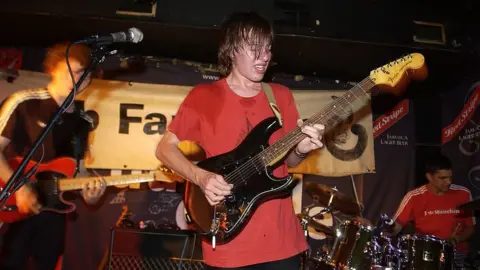 Getty Images
Getty ImagesVenues like Barfly - which is now the Camden Assembly - have just received a massive boost.
230 small and medium-sized venues in England and Wales will see a 50% reduction in business rates, a fee which is charged to most non-domestic properties.
It should save each venue an average of £7,500 a year, according to the Independent Venues Trust - a charity which aims to protect and improve UK grassroots music venues - and make it more likely that acts still have small, sweaty spaces to hone their craft.
It was at Barfly where Bombay Bicycle Club met producer Jim Abbiss, who worked with them on their debut album and throughout their career.
Jack says the venues provide a lifeline.
"Playing live has kind of become the main source of sustenance for bands... bands aren't going to be able to rely on income from royalties.
"I know there's lots of smaller venues struggling but we all need to try our hardest to keep them open."
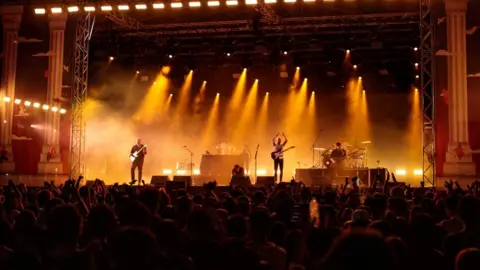 Getty Images
Getty ImagesThe news comes at the start of Independent Venue Week, which celebrates spaces up and down the country where some of the world's biggest names have performed during their careers.
"There's so many people in and around the venues in their local communities who are willing to come down, paint walls, make repairs, give their time for free - because they're so appreciative of having these spaces," Chloe Ward, director of UK for Independent Venue Week, tells Radio 1 Newsbeat.
"They open their doors to audiences to come in and be inspired to become managers or artists themselves or to get into the music industry."
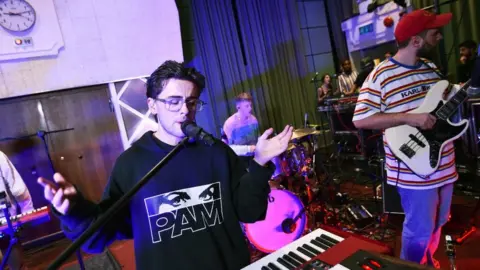
Chloe says current "astronomical business rates" are the "main struggle" for lots of the small venues who take part in their event.
"You recognise how passionate and innovative the owners are. They are nurturing talent who goodness knows where they're going to be in five years - they could be headlining Glastonbury or arenas.
"They'll probably start out on the bottom of the bill playing to 10 of their mates... it's where they get noticed."
Easy Life - runners-up on this years' Sound Of 2020 poll, who just got their first UK top 10 with their latest EP - will recognise that story.
They'll tour the US later this year but for singer Murray Matravers, smaller shows in their hometown Leicester are "the ones we still talk about".
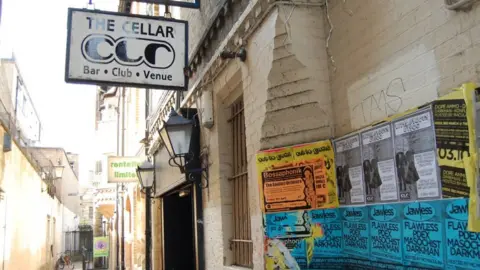
He remembers having conversations not long ago where "one of us would come off stage and go, 'Did anyone know those people stood to the left of the stage?'
"We'd figure out no-one knew them and we actually had strangers coming to our shows. That was mental."
Celeste, who won this year's Sound of 2020 poll as well as the Brits Rising Star award, says those situations "build your confidence and test you".
"It's really healthy," she tells Newsbeat."If it gets to a point where I'm playing really big venues, I always want to go back and play those smaller, more intimate places."
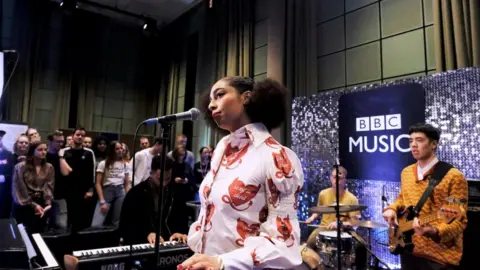
Inahler, who have just toured America with Blossoms, feel similarly.
"We spent a long time figuring out how to be a band," says frontman Eli Hewson.
"Playing those early gigs was like 20 minutes of trying to survive on stage without messing up."
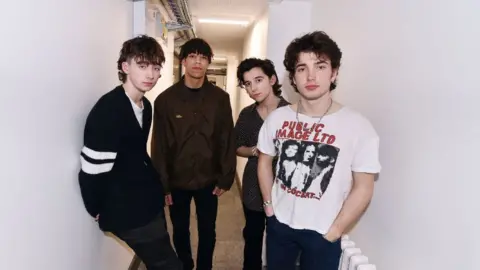
They say they've played gigs "on top of fold-out tables" in tiny rooms and a show in Brighton where they played "in something the size of a pizza oven" where Eli fell into the drum kit because the stage was so small.
Those stories are something drummer Ryan McMahon says the band "wouldn't change".
Allow X content?

"When you get some of the lows of playing those places, you come out of it like feeling it can only go up from there.
"To be honest there's nothing bad about those shows."
Mark Davyd, CEO of the Music Venues Trust, celebrated business rates being cut after "five years of campaigning" - but says there's "still a lot to be done".
"We look forward to working with the governments in Scotland and Northern Ireland to make sure Grassroots Music Venues (GMVs) across the UK have a level playing field."


